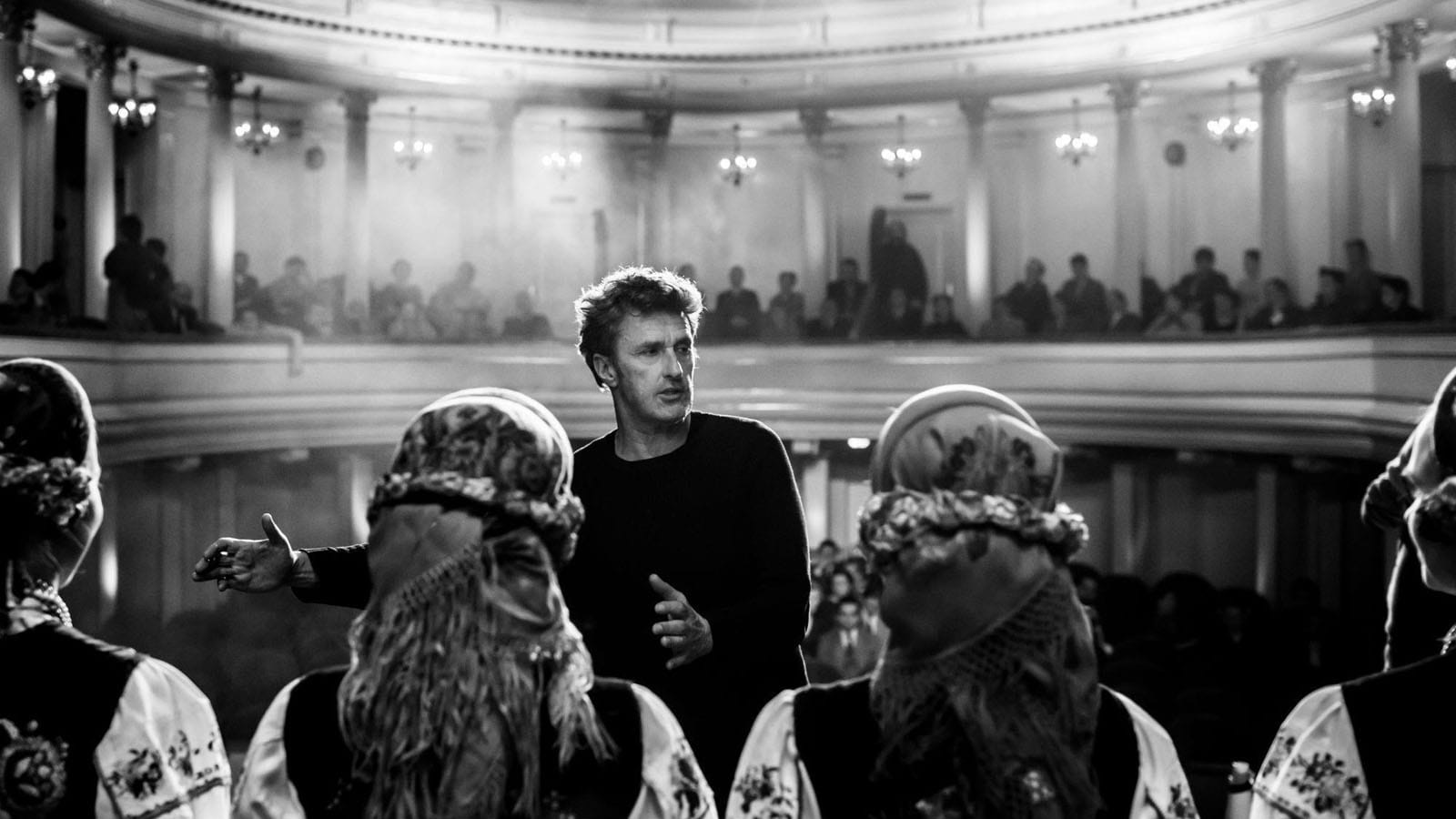Cold War Tops the European Film Awards

When the more than 3,500 members of the European Film Academy like a movie, they really like a movie. For the past four out of five years, the Academy has presented five of its top European Film Awards to a single title, starting with Pawel Pawlikowski’s Ida in 2014. Maren Ade’s Toni Erdmann followed in 2016, and last year’s quintuple winner was Ruben Östlund’s The Square. This year, it’s Pawlikowski’s turn again as Cold War, in which a couple discovers that their love affair will be just as stormy in capitalist France as it was in communist Poland, has won best film, director, and screenplay for Pawlikowski, best actress for Joanna Kulig, and best editing for Jaroslaw Kaminski. Other notable EFAs presented over the weekend in Seville have gone to Armando Iannucci’s The Death of Stalin for best comedy, Lukas Dhont’s Girl for best discovery, and Marcello Fonte for his lead performance in Matteo Garrone’s Dogman.
Meantime, the nominations for the Prix Lumières, France’s rough equivalent to the Golden Globes, are out and, as Melanie Goodfellow reports for Screen, Jacques Audiard’s The Sisters Brothers, Jeanne Herry’s In Safe Hands, Xavier Legrand’s Custody, and Emmanuel Mouret’s Mademoiselle de Joncquières all lead with four each. In the U.S., both the Boston Society of Film Critics and Boston Online Film Critics Association have named Lynne Ramsay best director of 2018 for You Were Never Really Here, while the Phoenix Critics Circle favors the The Favourite.
One of the challenges facing publications covering awards season is to come up with a way to break the monotony of the parade of the same names marching by over and again for months on end. A couple of weeks ago, the New York Times Magazine got a dozen contenders for acting awards to dance in short films directed by the New York City Ballet’s resident choreographer, Justin Peck. The Hollywood Reporter has set up roundtable discussions with six directors (Ryan Coogler, Bradley Cooper, Alfonso Cuaron, Marielle Heller, Yorgos Lanthimos, and Spike Lee), actors (Mahershala Ali, Chadwick Boseman, Timothee Chalamet, Richard E. Grant, Hugh Jackman, and Viggo Mortensen), and actresses (Glenn Close, Lady Gaga, Kathryn Hahn, Nicole Kidman, Regina King, and Rachel Weisz). And Variety has invited seventeen directors to write about another director whose work they admire. You’ll find, for example, David O. Russell’s appreciation of Spike Lee’s “singular voice” as well as praise for Steve McQueen from Ava DuVernay, Gina Prince-Bythewood on Barry Jenkins, Christopher Nolan on Damien Chazelle, and Josh Safdie on Yorgos Lanthimos.
Latest Lists
An annotated best-of-2018 list definitely worth spending some time with comes from Slant, where Niles Schwartz writes about Paul Schrader’s First Reformed (#1), Pat Brown revisits Lee Chang-dong’s Burning (#2), and so on through twenty-five titles in all. “Cinema keeps getting better—more formally adventurous, auto-critical, and responsive to the chaos of the society that yields it—but at the price of being less and less seen,” writes Chuck Bowen in his introduction.
First Reformed and Burning also top the list from Justin Chang in the Los Angeles Times, albeit in reverse order, and both films place second in the film and director categories, respectively, in IndieWire’s poll of polled 232 from thirty-two countries. Alfonso Cuarón’s spectacularly composed Roma is the clear favorite among those casting ballots in the poll. Roma places first in the best film, director, foreign film, and cinematography categories.
RogerEbert.com has been posting full ballots with notes from each of its contributors, and the Hollywood Reporter has collected top tens from its team of critics. Philosopher and cultural critic Steven Shapiro tops his list of twelve with Boots Riley’s Sorry to Bother You, arguing that it’s the “closest we may well come to a comprehensive vision of racialized capitalism today: both how it works and how it feels.” For further listing, see Alonso Duralde (TheWrap), Tomris Laffly (Time Out), Michael Phillips (Chicago Tribune), John Powers (Vogue), Joshua Rothkopf (Time Out), Dan Schindel (Hyperallergic), Dana Stevens (Slate), Cédric Succivalli,Keith Uhlich, and Alison Willmore (Buzzfeed).
Rolling Stone’s David Fear writes about his favorite documentaries and horror movies of the year, while Luke Buckmaster picks the best films from Australia for the Guardian. For the Notebook, Sean Gillman looks back on “a remarkably strong year for Chinese language cinema.” And to last week’s overview of how critics have been sizing up the year in television, we can add new lists from Slant,Noel Murray (The Verge), and Pilot Viruet (Flavorwire).
For news and items of interest throughout the day, every day, follow @CriterionDaily.



